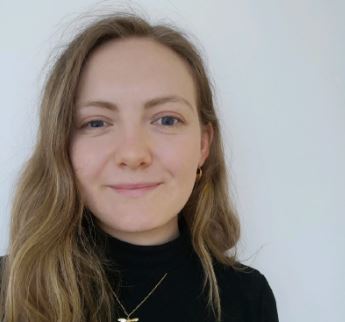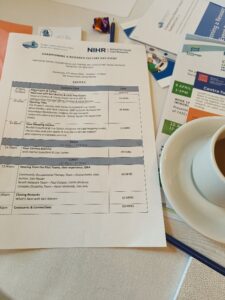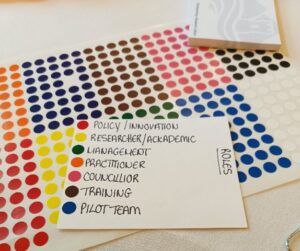27 June 2024

By Lilly Trapp – Research Facilitator at Kent Research Partnership

Earlier this year I had the privilege of travelling to Swansea to learn about the approach to building a culture of research in Adult Social Care teams in Neath Port Talbot Council. The excitement and engagement in the room was palpable, and testament to the hard work that Rachel Scourfield and Liza Turton have delivered to bring colleagues with them on the journey to becoming more interested in research.
One of their key models is using case-mapping with three pilot teams – the community Occupational Therapy team, Neath Network Community Team and the Complex Disability team. It was truly inspiring to hear from the practitioners in those teams about their experiences of committing to regular research-related case mapping sessions. While they all noted the challenges of finding the time to stop and reflect, they were united about the benefits far outweighing the challenges:
- The Occupational Therapy team particularly highlighted the benefit to the team culture, sense of professional identity and taking responsibility for being up to date with practice. Since being a pilot team, the team managers have set up their own journal club which is very well-attended and brings the team together in a way which hasn’t happened since the pandemic.
- A Social Worker from the Community Team gave a powerful account of how her relationship with someone she was working with improved dramatically following the support from case-mapping and the suggestion of considering different approaches to communication and trauma-informed practice.
- A team manager noted that there was some reluctance at the start from busy practitioners but that they quickly saw the value of investing the time which was then regained later as colleagues were better equipped to consider other situations, and that fundamentally “we’ve got to base [our practice] on something”.
- A practitioner from the Complex Disability team highlighted the benefits of increased professional confidence and resilience, including in multi-agency discussions where staff felt more supported after the collective discussions with their colleagues about the evidence they were using to back-up their analysis.
Many of the challenges, barriers and opportunities described by the leads and others in the room resonated strongly with our experiences at the Kent Research Partnership. In particular, the importance of time, skills, and agreement throughout the organisation that research is a priority. Some key takeaways that stuck with me included:
- There is clear support for the project at all levels of the council – councillors, senior leaders, frontline practitioners, managers and students were all in attendance and in agreement about the importance of building a research culture. This is perhaps due to the approach of starting small and demonstrating the benefits meaning that other teams now want to get involved.
- Access to journals has been provided to council staff by Social Care Wales (via NHS OpenAthens) but ongoing support is required around research skills such as searching and synthesising evidence.
- Importance of spotting opportunities – for example, the council’s supervision policy was being updated which provided a chance to incorporate an expectation around discussing the research and evidence base underpinning decision-making in supervision.
- Sustainability vs specialist roles – team leaders are starting to take on some of the case-mapping so that the Consultant Social Workers can move on to setting up other teams. Liza and Rachel highlighted the importance of them having flexible diaries with time bought out to focus on this as protected time is essential to setting up a programme like this.

It is clear that many councils are embracing the importance of building a culture of research and evidence in practice and it is brilliant that different models and approaches are being trialled to understand what works. Given the shared challenges around access to resources and training, protected time, and generating relevant research to inform practice, it is extremely important for councils to collaborate and learn from each other to try to make research capacity building more accessible, relevant and sustainable.